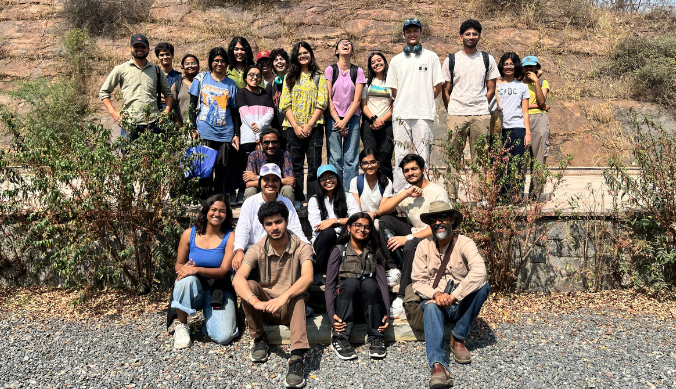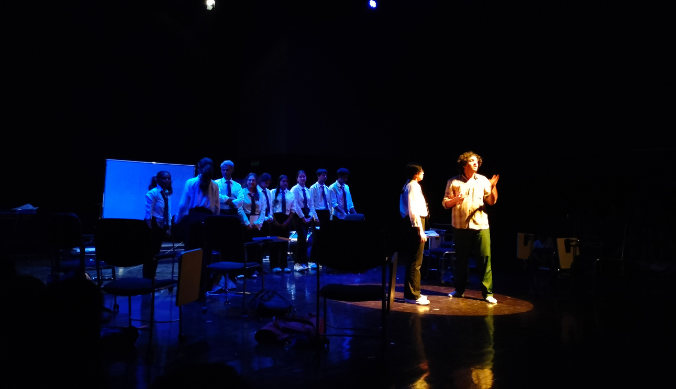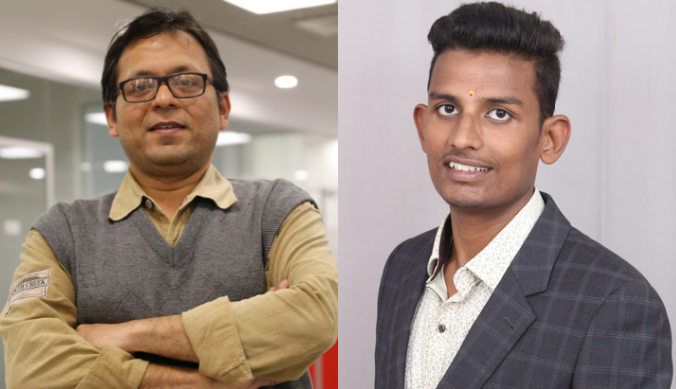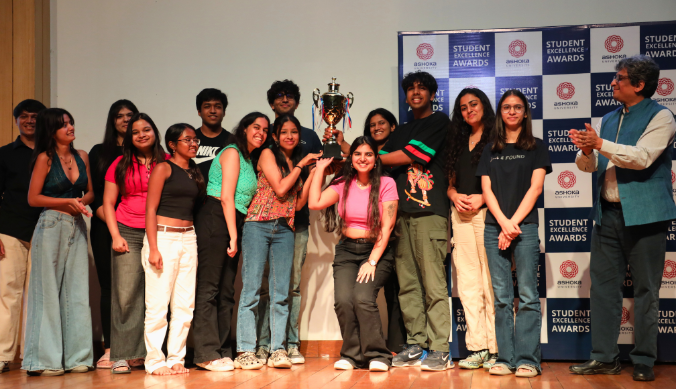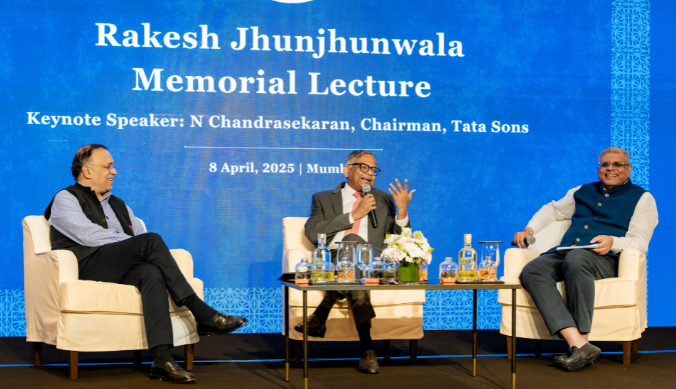Celebrating the Timeless Voice of Bhojpuri Folk: An Evening with Shrimati Urmila Srivastava
Padma Shri Urmila Srivastava graced Ashoka University with a soulful celebration of Kajri, Bhojpuri folk, and the spirit of rural womanhood.
As a part of “the series”, the Office of Student Affairs on 15 April 2025, organised a special musical performance by Shrimati Urmila Srivastava, the living legend of Bhojpuri folk and Kajri tradition.
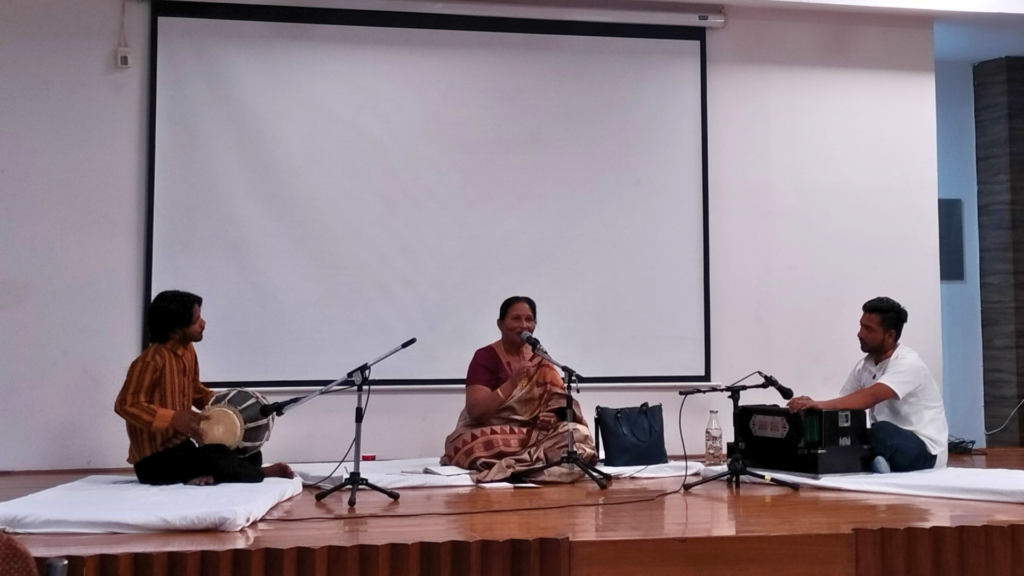
In a soul-stirring evening steeped in tradition and nostalgia, Ashoka University paid tribute to one of Bhojpuri folk music’s most revered voices. Shrimati Urmila Srivastava, a master of Kajri, the evocative monsoon song form rooted in the folk culture of Uttar Pradesh, is among the foremost custodians of India’s living folk heritage. She was honoured with the Padma Shri in 2024. She brings with her decades of folk musical devotion, oral storytelling, and a deep connection to the sounds and sentiments of India. Her voice is a bridge between generations, bearing memory, identity, and the enduring rhythm of everyday life. At approximately 75 years old, she continues to embody the strength of a woman who has balanced passion and family, art and academia. A former lecturer with a teaching career spanning over 40 years, Urmila Ji’s performance was nothing short of legendary, rekindling memories, culture, and the roots of a region often overlooked.
The event began with a divine invocation, a prayerful welcome song celebrating the feminine divinity. As her voice rang through the air, it was devotion, power, and purity in one breath. Following that was a soul-enriching performance dedicated to the virtues and valour of Lord Ram.
As her voice flowed through the MPH, the audience was visibly entranced. Heads moved rhythmically in quiet harmony, while many closed their eyes to soak in the rich symphony of sound. A serene stillness filled the space, interrupted only by the occasional sigh of admiration. Some audience members swayed softly in their seats, carried by the emotional tide of melodies that echoed memories of home, tradition, and ancestral stories. It was a moment suspended in time, where sound, sentiment, and shared cultural memory came together in perfect resonance.
The highlight of the evening, however, was her mastery of Kajri, a genre synonymous with the rainy season and raw rural emotion. One of the most celebrated Kajri songs she sang shares the story of a woman yearning for her beloved to fetch henna from a distant garden by cycle. The song painted a vivid picture of longing, love, and rural life, with the woman humorously assuring her beloved that even if he’s caught and jailed for trespassing, she’ll arrange a lawyer and get him out.
Another Kajri focused on the swing, capturing the delicacy of romance and the tranquillity of the monsoon. She also sang a deeply reflective Kajri about the challenges faced by women who step out alone, touching upon societal pressures, safety concerns, and how times have changed from when parents would insist daughters return before sunset, to now, when work often begins in the evening.
Urmila Ji didn’t stop at Kajri. She ventured into Lok Geet, celebrating everyday community life, and Phagun songs reflecting the joy and playfulness of Holi. One of her songs invited her beloved to play Holi with a bold and joyful spirit, celebrating reunion and colour. Her Chaiti song expressed the sadness of spending spring without a brother visiting from the parental home, a common theme in folk traditions. The evening also featured vibrant and playful songs that celebrated love, beauty, and rural elegance, full of imagery of traditional clothes, sweet treats, and village scenes.
Shrimati Srivastava’s performance wasn’t just a musical evening; it was a cultural revival. Through her songs, she narrated the lives, struggles, joys, and spirit of Bhojpuri women. In every beat and every pause, she carried the soul of a region, reminding everyone of the power of folk traditions in a world that often forgets them. This event was not only a tribute to her legacy but also a reminder of the richness of oral storytelling and the women who carry it forward, with resilience, rhythm, and reverence.
– Written by Chanda Kumari, ASP 2025
Study at Ashoka








